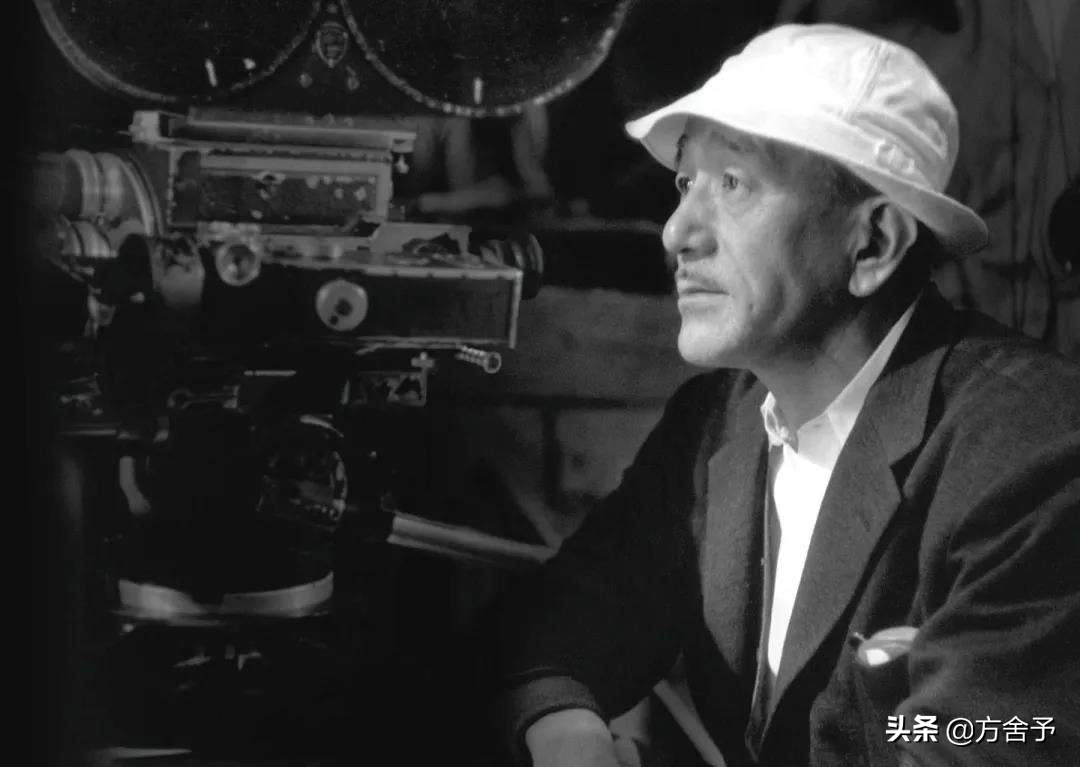If Akira Kurosawa is the world, then Ozu undoubtedly belongs to Japan – Ozu films can be said to be a model of Japanese folk films, and the depiction of konobu follows throughout his artistic life, as he said: "I open a tofu shop, I only sell tofu."
His creations completely do not conform to a set of Hollywood classic rules - his stories are full of family chores, which at first glance feel boring; his shots are self-contained, so that the general overseas audience who have adapted to the Hollywood language are a bit confused, unique low-camera shooting, cross-line front and back shots, illogical camera switching (such as train dialogue and bicycle shots in "Late Spring"), so when first watching his work, it will not be very adaptable, and even feel very "stuffy". However, after repeated observation, it is easy to be attracted by Ozu's unique charm, Ozu's story fully expresses the traditional Japanese interpersonal relationships, and discusses various issues about society and family. Ozu's work has its own unique charm, my favorite is Ozu's empty shots, the control of the rhythm of the film is always just right, the most poetic empty shots I have ever seen.

If Akira Kurosawa has achieved Toshiro Mifune, Ozu has also achieved Hara Setsuko, who has played the daughter of filial piety in Ozu's shots again and again, the wife of a virtuous woman, and a caring sister, it is no wonder that the Japanese regard Hara Setsuko as the most ideal Japanese woman, "eternal virgin".
Ozu did not have the international reputation of Akira Kurosawa during his lifetime, but the charm of his work was gradually discovered by film critics, and to this day it has been recognized as the greatest Japanese director, and his "Tokyo Story" has been ranked among the greatest Japanese films many times. As mentioned earlier, in addition to some of the early works that have died, Ozu's representative works are mostly similar stories, birth, old age, illness and death, marriage and funeral, and family changes are the eternal motifs of Ozu's creation, "Late Spring", "Mai Qiu", "Tokyo Twilight", "Autumn of Kohayakawa Family", "The Taste of Saury", "Floating Grass", you can always find similarities in Ozu's works, and there is another charm under the details.
Ozu's shots and lenses are the simplest, directly connected, and there is no melting mirror, black screen, or other editing methods. So editing is not a "second creation of the film" for him, which is different from many big directors. Many directors shoot n more materials, all angles, all kinds of performance methods, and then take them all to the editing room and slowly cut. Ozu's film is basically finished and I know what the final film will look like.
The style of Ozu's films is so strong that the style itself can override the narrative itself and become the main way of ideography, and the use of these film techniques has gradually become an ideographic symbol with symbolic meaning. Paul Shrader has a book about Ozu, Bresson, and Dreyer, saying that all three of their films have a transcendental style, and I don't know how to translate it, similar to a transcendental, divine meaning, invisible Zen taste of the avenue. This is probably the thing that affected world cinema the most aside from the film technique accident with the Ozu label.
It's also interesting that Ozu once said that movies are dramas rather than accidents. For him, the murder, violence and other dramatic elements with strong stimulation in the movie are "accidents", which are not common in real life, may not be seen in your lifetime, the real life is to eat and drink Lasa every day, people's life and death are composed of our seemingly boring daily bits, which is the most important element of his films.